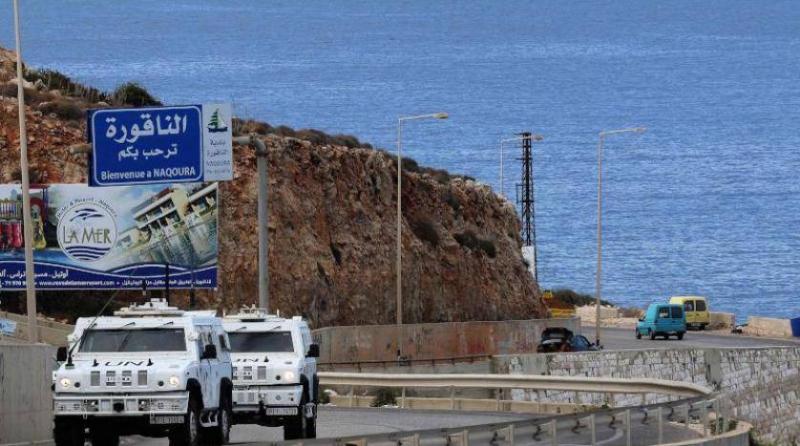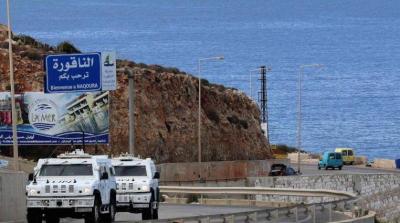Contrary to the positive and optimistic atmosphere that spread in Beirut and Tel Aviv regarding significant progress in Israeli-Lebanese negotiations on maritime border demarcation, mediated by the U.S., and nearing an agreement before next September, political sources in Tel Aviv reported that "the agreement is far off." They stated that "Israel has not yet formulated a final proposal regarding the borders and the sharing of profits." Furthermore, it was revealed that there are Israeli demands related to security needs that must be addressed to move forward.
These sources indicated, in a meeting of the Israeli government's security cabinet on Wednesday afternoon, that "Israel has not formulated a final proposal, nor is there even a draft proposal ready for a vote. The Israeli proposal that has been developed so far serves as a framework outlining the principles of what Israel can agree or disagree to negotiate." They discussed security matters that have not been raised previously, such as "the agreement must respond to Israeli security needs." When asked by one of the security officials present about what security needs were meant, he replied, "Israel prefers an independent Lebanese gas platform. If they have a platform, we can target it if they target our platform in the Karish field."
Earlier, political sources in Tel Aviv had spoken in a different tone just hours before, stating on Wednesday that "there is a possibility of reaching an agreement on maritime border demarcation with Lebanon by next month." The newspaper "Haaretz" as well as "Channel 13" reported from sources familiar with the indirect negotiations between Beirut and Tel Aviv via the American mediator that "Israel agreed to extend the negotiation timeframe and stated that it does not object to postponing the gas extraction process from the Karish field to after next September, which Israeli authorities had previously set in agreement with the drilling company."
Senior officials from security agencies confirmed during the cabinet session that "failure to reach an agreement with Lebanon on maritime border demarcation could lead to security escalation on the northern border, represented by a battle lasting several days." According to the news website "Walla" in Tel Aviv, security officials reviewed during the cabinet session the Lebanese and American proposals and the Israeli stance on maritime border demarcation, in addition to what was described as "Hezbollah's provocations directed against the Karish gas platform and concerns about further actions it might take in the future."
A "Walla" source reported that security leaders unanimously agreed during the cabinet session that "security escalation is the only alternative to an agreement with Lebanon regarding the disputed maritime areas." Political correspondent Barak Ravid noted that the security leaders participating in the meeting, including the Chief of Staff of the Israeli army, Aviv Kohavi, the head of Military Intelligence (Aman), Major General Aharon Haliva, the head of the Research Department in Aman, Brigadier General Amit Saar, the head of the Israel Security Agency (Shabak), Ronen Bar, and the head of the Mossad, David Barnea, all stressed the need to ensure deterrence against Hezbollah threats.
They explained that "there is a high likelihood of miscalculation on Hezbollah's part that could lead to a (flare-up) of battles that might last several days on the northern front." The source added that Chief of Staff Kohavi and several senior security officials who attended the session agreed that "Hezbollah's Secretary-General, Hassan Nasrallah, intends to use the agreement as a symbol of victory for the party on the Lebanese internal front. If the end result of the (negotiation) process is the failure to reach an agreement while Israel begins gas extraction from the area, while Lebanon does not benefit from the gas, then the level of explosion (in the situation) will be high."
On the other hand, "Haaretz" quoted an informed source stating that the agreement between the parties "is not something that will happen immediately." Another source indicated that "Israel has set September as a target date for reaching an agreement, as it will begin drilling during this period, and under the estimation that this would prompt Hezbollah to attack the gas platform at Karish, Israel's response to such an attack could be severe and lead to escalation."
According to "Channel 13," three ministers who participated in the session expressed their belief that gas production at "Karish" may not start in September. Meanwhile, Israeli Energy Minister Karine Elharrar stated during the session that "gas extraction will begin when the company is fully prepared for it," claiming that any potential delay by the company is not related to "Hezbollah's threats."
Based on all this, sources in Tel Aviv indicated that the American mediator, Amos Hochstein, is expected to return to the region in about two weeks to conduct another round of negotiations with the Lebanese and Israeli negotiation teams.




